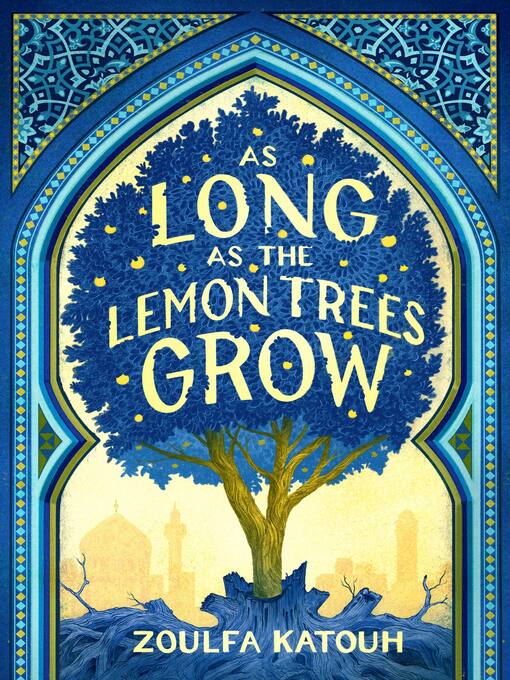Review by Booklist Review
This challenging read recounts some of the harsh realities Syrians have been facing over the last decade, told from the first-person perspective of hijabi teen Salama, who's struggling to decide between fleeing to (relative) safety or staying to help what remains of her community. Salama works in the hospital with more responsibility than any 18-year-old should bear, but her sister-in-law--her only remaining family--is due to give birth very soon. Leaving her homeland is risky, but is it a risk worth taking? It isn't easy to visualize the pain and trauma Syrians face by watching, reading, or listening to news reports, but Katouh, who is Syrian, shares these stories, all inspired by real events, massacres, and tragedies, with authenticity and raw truth, putting a moving human face on the historic events. Despite the heavy subject matter, there is also hope written into the narrative. Leaving one's homeland is not an easy thing, and it can be difficult to understand if not for the stories like this, which carefully and thoughtfully account for all the trauma leading to these painful decisions.
From Booklist, Copyright (c) American Library Association. Used with permission.
Review by Publisher's Weekly Review
Katouh's powerful debut, a speculative novel set amid the Syrian Revolution, follows one Syrian 17-year-old's struggles balancing duty to her country and to herself. Before the Arab Spring, Salama Kassab dreamed of studying herbology, becoming a pharmacist, and traveling the world. Now, a year after the 2011 uprising, she's volunteering as a de facto surgeon at her local hospital, tending to those wounded in the violence surrounding them. Following Mama's death and the military arrests of Baba and her brother, Salama cares for her pregnant sister-in-law, Layla, who wants Salama to arrange them both passage on a boat to Germany. But Salama's hesitancy to flee her country in its time of need, coupled with a budding relationship with Kenan Aljendi, whom she met after treating his younger sister, leaves her feeling unmoored. Her trauma manifests into a PTSD-induced hallucinatory companion named Khawf, who dispenses advice and forces her to examine her responsibilities to Layla, Kenan, herself, and Syria. Katouh's lyrical prose, combined with a moving portrayal of first love, unflinchingly depicts both the costs of revolution, and the strength it takes to fight for one's beliefs. Ages 14--up. Agent: Alexandra Levick, Writers House. (Sept.)
(c) Copyright PWxyz, LLC. All rights reserved
Review by Horn Book Review
When a revolution is ignited in Syria in 2011 to oust Assad's regime ("no Syrian family has evaded the dictatorship's cruelty"), the government responds by detaining, torturing, and bombing civilians and using chemical attacks. A year into the siege of the city of Homs, eighteen-year-old Salama, who has completed one year of pharmacy school, is a volunteer at a hospital where she tends to wounded patients and even performs surgeries due to a shortage of doctors. Her mother has been killed in a bombing, and her father and brother are detained and presumed dead; Salama now cares for her pregnant sister-in-law, Layla. A specter named Khawf (fear in Arabic) visits and shows Salama devastating images of her future if she and Layla don't leave Syria, but she is conflicted out of a sense of duty to her patients. Amid the desperate situation, a chaste, halal romance develops between Salama and Kenan, a YouTube war documentarian, culminating in marriage. Salama is at a more mature phase of life than many YA protagonists, as the war forces her to a level of personal and professional growth beyond her years. The novel is full of striking details about living under siege, with a focus on the heroic deeds of medical professionals, but it also probes bigger-picture issues around PTSD, survivor's guilt, national loyalty, and how morality stretches for the sake of survival. An unflinching representation of the early days of the Syrian revolution that incorporates sophisticated and unexpected narrative techniques and surprising revelations. Julie Hakim Azzam November/December 2022 p.89(c) Copyright 2022. The Horn Book, Inc., a wholly owned subsidiary of Media Source, Inc. No redistribution permitted.
(c) Copyright The Horn Book, Inc., a wholly owned subsidiary of Media Source, Inc. No redistribution permitted.
Review by Kirkus Book Review
When her city of Homs comes under fire in the Syrian revolution, an 18-year-old pharmacy student faces a gut-wrenching decision. Salama, an avid horticulturalist, is living a nightmare: Her father and older brother were captured by government forces during a protest; her mother died in a bombing. Salama's left with Layla, her pregnant sister-in-law and best friend--and Khawf, Arabic for fear. Khawf is the personification of her trauma who pushes her to attempt the treacherous journey by sea to seek refuge in Germany. Starving and exhausted, Salama nevertheless wavers. Wracked with guilt over what might happen to Layla and her baby if they delay, she finds meaning in helping her beloved homeland by volunteering at a hospital. But the burden of treating streams of victims, many of them children who die in agonizing ways, takes a toll on her fragile mental health. Salama meets 19-year-old Kenan, who is caring for his orphaned younger siblings and is committed to doing his part by uploading videos of protests to YouTube. Their blossoming love is an act of hopeful defiance, but as the Free Syrian Army's hold on Homs becomes increasingly tenuous, the reality of their dire fate should they be captured heightens the urgency. Harrowing moments are juxtaposed against painfully beautiful memories of peaceful times, and readers will linger over the many exquisite sentences in this memorable novel that honors the stories of countless Syrians. Searing in its intensity. (author's note) (Fiction. 14-18) Copyright (c) Kirkus Reviews, used with permission.
Copyright (c) Kirkus Reviews, used with permission.


